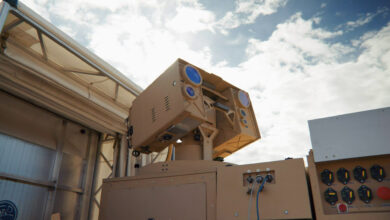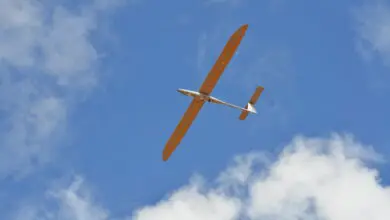The UK has selected SeeByte for a program seeking methods for the Royal Navy to securely operate swarms of drones.
Under the UK Defence Science and Technology Laboratory (DSTL) contract, SeeByte will research and develop “a secure architecture for Mixed Multi-Domain Swarms of Robotic Autonomous Systems.”
Phase 1 of the effort will define a setup that links drones so they can collaborate in swarms. This stage will ensure the architecture can be implemented within the scope of cyber risks agreed with the DSTL.
Work will be facilitated in partnership with tech firm Blue Bear and will leverage the team’s combined expertise in maritime autonomy across the surface, sub-surface, and aerial domains.

Phase 1 will run for a year. Potential follow-on phases will implement, test, and evaluate the mixed multi-domain swarm architecture.
“We are immensely proud to be supporting DSTL and the wider UK [Ministry of Defence] in the first phase of this exciting project, as we work together with Blue Bear to address some of the most pressing Defence challenges in delivering secure distributed autonomy at scale and mass,” SeeByte Chief Technology Officer Scott Reed said.
Unmanned Swarming Progress in UK
In May, the DSTL collaborated with the US and Australia to conduct a joint trial on an artificial intelligence (AI) powered military aerial drone swarm.
The test ensured the detection and tracking interoperability between AI platforms and unmanned systems against threats in real-time scenarios.
Last year, the UK Royal Air Force confirmed that several of its drone swarms are ready for air defense missions following a three-year evaluation of five different drone models.
In 2021, the DSTL deployed the UK’s “largest” fixed-wing airborne drone swarm to test swarming capabilities in military applications. This activity achieved over 220 sorties in two weeks.











